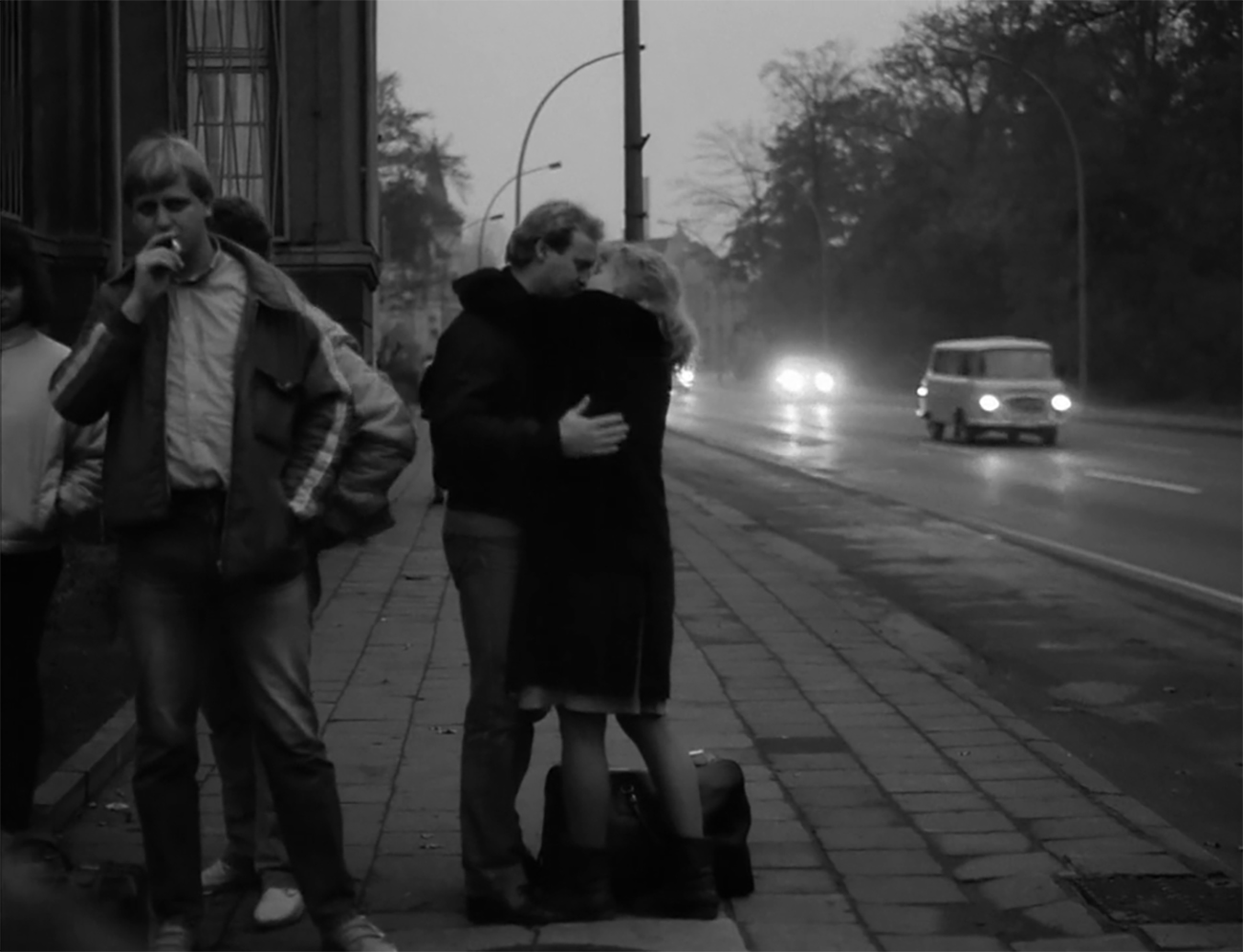Helke Misselwitz / Winter Adé
Followed by a conversation between Helke Misselwitz and Kristofer Woods
In collaboration with Sabzian
Courtisane is een platform voor film en audiovisuele kunsten. In de vorm van een jaarlijks festival, filmvertoningen, gesprekken en publicaties onderzoeken we de relaties tussen beeld en wereld, esthetiek en politiek, experiment en engagement.
Courtisane is a platform for film and audiovisual arts. Through a yearly festival, film screenings, talks and publications, we research the relations between image and world, aesthetics and politics, experiment and engagement.
Followed by a conversation between Helke Misselwitz and Kristofer Woods
In collaboration with Sabzian

In 1987, shortly before the collapse of the GDR, Helke Misselwitz travelled by train from her home near Zwickau in the south to the north coast of East Germany. Along the way, she met women of different ages and backgrounds, whom she filmed with rare tenderness and precision. “For almost forty years, the law has established that women are legally and economically equal to men,” Misselwitz said. “But what has happened in those 40 years in people’s behaviour towards one another? That’s what interested me.” Referring to her own biography – she was born in front of a closed railway crossing – the filmmaker explores how women and girls live in “real existing socialism” and “how they want to live”. The women – two young punks, a worker in a briquette factory, a Berlin economist, and an 85-year-old woman celebrating her diamond wedding anniversary – tell of their disappointments, desires and hopes. Never before had anyone in the GDR appeared so openly and at the same time so naturally in front of the camera to talk about their circumstances and dreams. With the programmatic title “Farewell Winter”, the film marked the untenability of the official stance. It pointed to a clear shift in the mood in East Germany, which finally broke out a year later.
“The three structural elements in Winter Adé are the railroad journey, the intensive meetings with women, and the observation of daily life. The only fixed aspects of the film was that it begins with my birthplace in Zwickau and ends on a ferry on the sea. I definitely wanted to tell about myself in the beginning: by accident, I was born on the road, in an ambulance, right in front of a closed railway gate. And this fact leads into the concept of a railway journey. Of course, the railroad is a very important means of transportation in the GDR, but its meaning as a poetic symbol is also clear. It points to the existence of closed borders and also to the internal structure [of the country]: there are many tracks in life, but generally you can’t depart from the one you’re on because the switches are operated by someone else.”
German spoken, English subtitles
Digitized and restored by DEFA